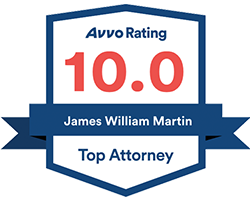Florida Business Law FAQ
Here are some frequently asked questions and answers regarding business entities in probate and trust estates. This includes corporations, LLCs and partnerships. St. Petersburg probate attorney James W. Martin has extensive experience with business entities. This page is provided for general information and not specific legal advice.
For additional information, see Jim Martin’s legal forms books “How To Form a Florida LLC or Limited Liability Company“, “How To Form a Florida Business Corporation“, and “How To Form a Florida Nonprofit Corporation“, which are available on Amazon and Barnes and Noble.
The ten steps to starting a business in Florida are: (1) Hire a lawyer and an accountant; (2) Form the entity; (3) Open a bank account in the entity name; (4) Get licenses; (5) Get IRS tax ID number; (6) Get Florida sales tax number; (7) Get Insurance; (8) Prepare contract forms; (9) Get a domain name, website, and email; (10) Hire employees. For more details, see Ten Steps to Starting a Business in Florida on the Florida Lawyer Jim Martin Blog at www.jamesmartinpa.com.
Formation of an entity is the process by which a new Florida business is created. The work of the Pinellas County business lawyer includes analysis of the types of entities and choosing the best form of legal entity for the business. A Florida corporation is usually the simplest form of business entity, but more and more businesses are forming as limited liability companies (LLCs).
Corporations are formed in Florida by filing articles of incorporation with the Florida Division of Corporations. But that is just the first step. For additional information, see the free ebook written by St. Petersburg lawyer Jim Martin on how to form a Florida corporation at www.jamesmartinpa.com. There are other legal documents to be prepared, such as bylaws, minutes, stock certificates, etc., and there are accounting and tax matters to deal with. After a corporation is formed, it must file tax returns, hold meetings, and file annual reports. If it fails to do this, it might be dissolved or disregarded by the courts as a legal entity. This could result in the shareholders having liability for the debts of the corporation. This is problematic because one of the primary reasons for shareholders to form a corporation is to limit their liability.
An LLC is formed in Florida by filing articles of organization with the Florida Division of Corporations. But that is just the first step. For additional information, see the free ebook written by St. Petersburg lawyer Jim Martin on how to form a Florida LLC or limited liability company at www.jamesmartinpa.com. There are other legal documents to be prepared, such as operating agreement, minutes, membership certificates, etc., and there are accounting and tax matters to deal with. After an LLL is formed, it must file tax returns, hold meetings, and file annual reports. If it fails to do this, it might be dissolved or disregarded by the courts as a legal entity. This could result in the members having personal liability for the debts of the LLC. This is problematic because one of the primary reasons for members to form an LLC is to limit their liability.
Entity choices in Florida include sole proprietorship, business corporation, nonprofit corporation, limited liability company LLC, general partnership, limited liability partnership LLP, limited partnership LP, limited liability limited partnerships LLLP, professional service corporation PA, and professional limited liability partnership PLLP. For more details, see What are Some Entity Choices in Florida.
The most common entities for new Florida businesses are corporations, LLCs and partnerships:.* Corporation. The liability of a shareholder in a Florida corporation is limited to what he or she paid for the shares of stock in the corporation. The corporation can elect to be an S corporation so that items of income and expense are not taxed to the corporation but instead appear on a Schedule K-1 for the shareholders to report on their own tax returns. The corporation’s shareholders elect the board of directors. The board of directors elect the president and other officers. The officers hire and fire employees. * LLC. The liability of a member of an LLC is limited to the member’s contribution in the same way that shareholders have limited liability. The income and expense items of an LLC are generally not taxed to the LLC but appear on Schedule K-1s like S corporations for the LLC members to report on their own tax returns. One danger of an LLC is that members sometimes forget to follow the formalities of legal entity and mix the LLC business assets with their own, which can subject the members to personal liability for the LLC’s debts. * Partnership. The liability of a partner in a general partnership is unlimited, but the partnership can elect to be a limited liability partnership in order to limit partner liability. Like an S corporation and an LLC, the items of income and expense of a partnership are not taxed to the partnership but appear on a Schedule K-1 for the partners to report on their tax returns.
Yes. In the United States there are 50 states, and each state has its own laws governing LLCs, corporations and other entities. That means there are 50 corporation statutes, 50 partnership statutes, 50 LLC statutes, 50 nonprofit corporation statutes, etc. Some state entity laws differ more than others. Especially Louisiana, whose law is based on French law. The law of other states was based on English common law, which is generally considered to be the law in effect in England in 1776.
Yes. Here is an example. Suppose that Joe (not a real person) opens a candy store all by himself. He buys candy from a wholesale supplier under a supplier’s account in his own name “Joe”. He rings up sales on the cash register himself and deposits each day’s receipts to his personal bank account in his own name “Joe”. He signs the store lease in his own name “Joe” and pays rent with his personal checks as “Joe”. All goes well the first year. He sells $100,000 in candy that he bought wholesale for $50,000 and paid out $20,000 in rent so he netted $30,000. Then someone gets sick on his candy. Then someone else. Pretty soon he’s got a dozen claims against him. He calls his supplier who tells him a bad batch of candy is making people sick all across the country and the candy manufacturer is out of business. Joe gets sued. First, by the dozens of sick customers, and then by his landlord. They all sue him personally because he is a sole proprietor. He did not make the candy. He did not know the candy was going to make people sick. All he did was sell the candy. Still, because he is a sole proprietor, he is the one getting sued. When court judgments are rendered against him personally, the judgment holders will be able to reach his bank accounts, motor vehicles, and other assets. Not a pretty picture. Joe could have limited his liability by forming an LLC, corporation, or other entity for this business.
A Florida LLC or limited liability company is formed by filing articles of organization with the Florida Division of Corporations. But that is just the first step. There are other legal documents to be prepared for the LLC, such as an operating agreement. It must file tax returns and annual reports, and it can hold meetings of members. If it fails to do this, it might be dissolved or disregarded by the courts as a legal entity, resulting in personal liability of the members for the LLC debts.
Articles of organization is the title of the legal document that is filed with the Florida Division of Corporations to form a new Florida limited liability company LLC. The articles of organization state such matters as the LLC’s name, address and other matters. The articles of organization may contain more legal clauses than the very simple articles provided for online filing by the Secretary of State, so that this information appears on the state database when banks and others dealing with the LLC look it up online.
Operating agreement is the title of the legal document that contains the rules by which the members of an LLC will operate. Operating agreements are not provided by the Florida Division of Corporations when LLCs are formed. Attorneys prepare operating agreements for Florida limited liability companies in order to state not only the rules but also the names of the persons who are the members who own the LLC.
A Florida limited liability company has one or more members, which is the name given to the persons who own the LLC. The rights and duties of the LLC members are specified in the Florida LLC laws and in the operating agreement of the LLC. Those documents provide for the ownership, management and control of the LLC. When LLC members disagree or otherwise have legal issues, they look to the operating agreement and LLC laws for answers and seek the advice of Florida lawyers.
The answer is that it depends on the context. The Florida LLC operating agreement might provide that the president and other officers of an LLC have duties similar to those of the president and officers of a corporation in Florida. Those duties may include the duty of good faith, the duty of loyalty, the duty to use such care as an ordinarily prudent person in a like position would exercise under similar circumstances, and to exercise the duties in a manner the believed to be in the best interests of the entity. But the duties of an LLC officer might not be the same as the duties of a corporation officer because the LLC statutes vary from the corporation statutes. Many LLC operating agreements do not provide for officers at all, but refer only to managers.
Articles of Incorporation is the title of the legal document that is filed with the Florida Division of Corporations to form a new Florida corporation. The articles of incorporation state such matters as the corporation’s name, address and other matters. The articles of incorporation may contain more legal clauses than the very simple articles provided for online filing by the Secretary of State, such as names and addresses of officers and directors, so that these names appear on the state database when banks and others dealing with the corporation look it up online. Articles of amendment are filed to amend the articles of incorporation.
Bylaws is the title of the legal document that contains the rules by which the shareholders, directors, and officers of a Florida corporation will operate. Bylaws are not provided by the Florida Division of Corporations when a corporation is formed. Florida attorneys prepare bylaws of Florida corporations.
Shareholders of Florida corporations are the ultimate owners of the corporations. Generally, the shareholders elect the directors, the directors elect the officers, and the officers hire and fire the employees. Therefore, shareholders generally have the ultimate control over the corporation. I say “generally” because the rights provided by Florida corporation laws may be varied by agreement among the shareholders, by the articles of incorporation, and by the bylaws.
The usual officers of a Florida corporation are president, secretary, treasurer, and vice president but the bylaws may provide for other officers such as chief executive officer (CEO), chief operating officer (COO), chief financial officers (CFO), etc. Officers are elected by the board of directors, who in turn are elected by the shareholders. The officers generally are responsible for hiring and firing employees, though this may vary from corporation to corporation and is usually found in the bylaws of the corporation.
General partnerships can be formed in Florida without filing any documents with the Florida Division of Corporations. But it is almost always advisable to register a general partnership with the Florida Division of Corporations because that is the only way for the partnership to elect limited liability status and become a limited liability partnership (LLP). If it does not elect limited liability status,, the partners of a Florida general partnership are personally liable for the partnership. It is important to note that limited partnerships are different from limited liability partnerships because limited partnerships must have at least one general partner and one limited partner.
Contact
If you have the need for a St Petersburg Pinellas County Florida probate attorney, you may use the contact form below or call Jim Martin directly at 727-821-0904 or email him at jim@jamesmartinpa.com for a free initial consultation.
The text on this page was written by James W. Martin, Esq. and was last updated on February 23, 2024.





